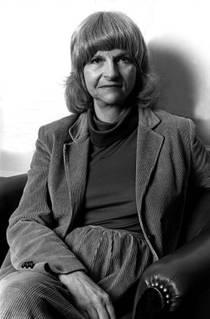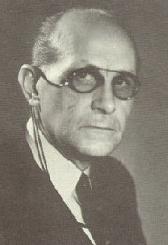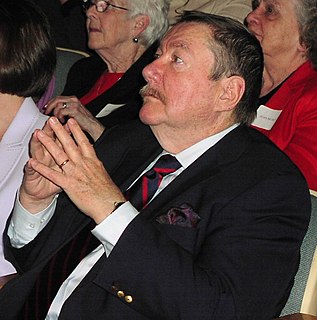A Quote by Alison Lurie
in a sense much great literature is subversive, since its very existence implies that what matters is art, imagination, and truth. In what we call the real world, on the other hand, what usually counts is money, power, and public success.
Related Quotes
Science begins with the world we have to live in, accepting its data and trying to explain its laws. From there, it moves toward the imagination: it becomes a mental construct, a model of a possible way of interpreting experience. The further it goes in this direction, the more it tends to speak the language of mathematics, which is really one of the languages of the imagination, along with literature and music. Art, on the other hand, begins with the world we construct, not with the world we see. It starts with the imagination, and then works toward ordinary experience.
If you awaken from this illusion, and you understand that black implies white, self implies other, life implies death - or shall I say, death implies life - you can conceive yourself. Not conceive, but feel yourself, not as a stranger in the world, not as someone here on sufferance, on probation, not as something that has arrived here by fluke, but you can begin to feel your own existence as absolutely fundamental. What you are basically, deep, deep down, far, far in, is simply the fabric and structure of existence itself.
Instead of educating the I.Q., we need to educate the H.Q., the heart quotient, the matters of truth, love, justice, and compassion. There are two ways to do this. One is through the read life experiences and the other is through literature. Literature has the power to take us outside ourselves and returns to ourselves a changed self.
All great art is by its very essence in conflict with the society with which it exists. It expresses the truth about the existence regardless of whether this truth serves or hinders the survival purpose of a given society. All great art is revolutionary because it touches upon the reality of man and questions the reality of the various transitory forms of human society.
I took Eugene Sue's Arthur from the reading-room. It's indescribable, enough to make you vomit. You have to read this to realize the pitifulness of money, success, and the public. Literature has become consumptive. It spits and slobbers, covers its blisters with salve and sticking-plaster, and has grown bald from too much hair-slicking. It would take Christ of art to cure this leper.
Business students are very oriented to playing a role in the real world and accomplishing something, not training themselves to be scholars and contribute to the literature. Teaching in that kind of environment has focused me much more on the real world, how pieces of the theory I know can be applied to real-world situations.







































